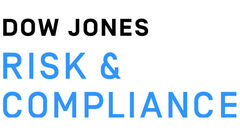
The case of Roman Abramovich: The impact of financial sanctions
What are bans on indirect provisions of economic or financial resources? A success story on financial sanctions with a look at the example of Roman Abramovich.

What are bans on indirect provisions of economic or financial resources? A success story on financial sanctions with a look at the example of Roman Abramovich.
Since the start of Russia’s war of aggression against Ukraine, financial sanctions have captured widespread public attention. Besides the seizure of pricey luxury yachts in the harbors of various EU countries, popular interest has been sparked by the sanctions against Chelsea Football Club in England’s Premier League. The legal basis of both the seizures and the restrictions on Chelsea FC’s operations are comprehensive financial sanctions against Russian oligarchs. Here we take a closer look at bans on the indirect provision of economic or financial resources as illustrated by the case of Roman Abramovich.
Financial sanctions work in two directions: They freeze the assets of the sanctioned entity, but they also impose bans on the direct and indirect provision of economic or financial resources.
Roman Abramovich owns Chelsea FC as well as expensive yachts, luxury real estate, and holdings in various Russian companies in different industries. His personal fortune is estimated at 7.2 billion US dollars, and he is considered a close confidant of Vladimir Putin.
A brief look at the background of Roman Abramovich and the Soviet Union of the early 1990s makes it easier to understand how Russian oligarchs were able to accumulate wealth and influence and why they are now wrapped up in the sanctions against Russia.
Abramovich’s direct ongoing political association with the Putin machine is cited as the reason for the sanctions against him.
But back to Chelsea FC. Why does the German coach of the English Premier League club have to worry about his income and the future of his employer when the UK and EU impose financial sanctions on the Russian oligarch Roman Abramovich?
The defining characteristic of indirect bans is that the affected entity itself – Chelsea FC, in this case – is not on any sanctions list. The sanctions in effect against the club stem from the sanctions against its owner, Roman Abramovich, who acquired all the shares in the Premier League club for 140 million pounds in 2003. The direct bans on the provision of resources imposed on Abramovich by the UK and EU in mid-March 2022 result in indirect bans against Chelsea FC.
This has restricted the club’s operations since mid-March. One effect of the sanctions is, for example, that EU or UK-based football clubs, hotels, and airlines are prohibited from having any business relations with Chelsea FC. Any failure to comply with the indirect bans is a violation of the embargo. This quickly made it clear that Chelsea FC would have to stop playing unless it gained an exemption from the British government. The government granted an exemption through May 31, 2022. What happens next is anyone’s guess. Chelsea FC faces an uncertain future.
The Chelsea FC case illustrates how the sanctions against Russian oligarchs and state-owned Russian companies draws attention to the scope of the indirect bans, especially as they apply to business with Russia.
The difficulty in checking the indirect bans is that the companies owned by an oligarch or state-owned Russian enterprise are themselves not usually on any sanctions list.
This means that automated sanctions list screenings of the business partner do not result in any hits. The indirect bans are discovered only after you dig into the ownership structure of the non-listed business partner.

Bans on indirect provisions? PEP List? Adverse Media? Comprehensive security for your transactions with AEB software and extended content from Dow Jones.
Here it should also be noted that US financial sanctions also have both direct and indirect applicability. The Office of Foreign Assets Control (OFAC), as the authority responsible for administering US financial sanctions, assumes an indirect ban against the unlisted entity if the ownership share is 50% or more. AEB, together with Dow Jones, offers the added option here of automatically checking the 50% rule of OFAC for an extra level of legal protection.
These risk feeds made available by Dow Jones help companies uncover potential risks by tapping into vast databases such as Sanctions Control & Ownership (SCO), Politically Exposed Persons (PEPs), State-Owned Companies (SOEs), and Adverse Media Entities. This makes it possible for a single business solution to automate tasks associated with trade compliance (such as sanctions list screening) and business compliance.